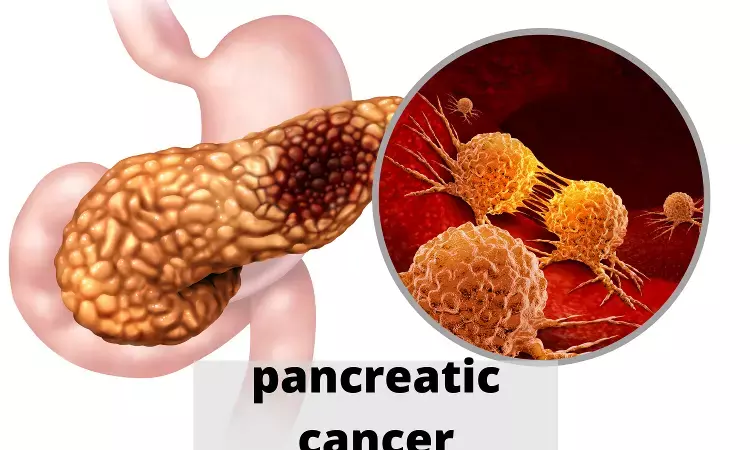- Home
- Medical news & Guidelines
- Anesthesiology
- Cardiology and CTVS
- Critical Care
- Dentistry
- Dermatology
- Diabetes and Endocrinology
- ENT
- Gastroenterology
- Medicine
- Nephrology
- Neurology
- Obstretics-Gynaecology
- Oncology
- Ophthalmology
- Orthopaedics
- Pediatrics-Neonatology
- Psychiatry
- Pulmonology
- Radiology
- Surgery
- Urology
- Laboratory Medicine
- Diet
- Nursing
- Paramedical
- Physiotherapy
- Health news
- Fact Check
- Bone Health Fact Check
- Brain Health Fact Check
- Cancer Related Fact Check
- Child Care Fact Check
- Dental and oral health fact check
- Diabetes and metabolic health fact check
- Diet and Nutrition Fact Check
- Eye and ENT Care Fact Check
- Fitness fact check
- Gut health fact check
- Heart health fact check
- Kidney health fact check
- Medical education fact check
- Men's health fact check
- Respiratory fact check
- Skin and hair care fact check
- Vaccine and Immunization fact check
- Women's health fact check
- AYUSH
- State News
- Andaman and Nicobar Islands
- Andhra Pradesh
- Arunachal Pradesh
- Assam
- Bihar
- Chandigarh
- Chattisgarh
- Dadra and Nagar Haveli
- Daman and Diu
- Delhi
- Goa
- Gujarat
- Haryana
- Himachal Pradesh
- Jammu & Kashmir
- Jharkhand
- Karnataka
- Kerala
- Ladakh
- Lakshadweep
- Madhya Pradesh
- Maharashtra
- Manipur
- Meghalaya
- Mizoram
- Nagaland
- Odisha
- Puducherry
- Punjab
- Rajasthan
- Sikkim
- Tamil Nadu
- Telangana
- Tripura
- Uttar Pradesh
- Uttrakhand
- West Bengal
- Medical Education
- Industry
Folfirinox prolongs survival in individuals with resected pancreatic ductal adenocarcinoma: Study

FRANCE: Patients with resected pancreatic ductal adenocarcinoma experience significantly longer survival with modified FOLFIRINOX compared with gemcitabine, according to a randomized clinical trial, published in JAMA oncology.
Among solid tumors, pancreatic ductal adenocarcinoma (PDAC) is one of the deadliest. Due to high rates of tumor recurrence, the 10-year overall survival (OS) is only about 4% even after curative-intent resection. Adjuvant chemotherapy with 5-fluorouracil, leucovorin, irinotecan, and oxaliplatin, (m)FOLFIRINOX, is recommended for patients with potentially resectable (PR) PDAC. Particularly in individuals with poor prognostic characteristics, neoadjuvant (m)FOLFIRINOX can be taken into consideration.
The purpose of this study was to report the 5-year results of the PRODIGE 24/Canadian Cancer Trials Group PA6 trial regarding the survival advantages of adjuvant modified FOLFIRINOX treatment compared to gemcitabine for resected pancreatic ductal adenocarcinoma (PDAC) and to identify the factors that predict favorable prognosis.
Patients aged 18 to 79 with histologically diagnosed pancreatic ductal adenocarcinoma who had undergone complete macroscopic (R0/R1) resection within 3 to 12 weeks prior to randomization were considered for this open-label, phase 3 randomized clinical trial. It was carried out at 77 hospitals in France and Canada. Participants were included between April 16, 2012, and October 3, 2016. The deadline for this study was June 28, 2021.
493 patients in total were randomly assigned in 1:1 ratio to receive modified FOLFIRINOX (oxaliplatin, 85 mg/m2 of body surface area; irinotecan, 150–180 mg/m2; leucovorin, 400 mg/m2; and fluorouracil, 2400 mg/m2, every 2 weeks) or gemcitabine (1000 mg/m2, days 1, 8, and 15, every 4 weeks) as adjuvant therapy for 24 weeks. Illness-free survival served as the main end point. Secondary outcomes included overall survival, survival without metastases, and survival for the particular cancer. It was assessed what factors might predict overall survival.
Findings of the trial:
In patients treated with modified FOLFIRINOX compared to gemcitabine
- median disease-free survival was 21.4 months vs 12.8 months (hazard ratio [HR], 0.66).
- The 5-year disease-free survival was 26.1% vs 19.0%.
- median overall survival was 53.5 months vs 35.5 months (HR, 0.68).
- The 5-year overall survival was 43.2% vs 31.4%.
- median metastasis-free survival was 29.4 months vs 17.7 months (HR, 0.64)
- median cancer-specific survival was 54.7 months vs 36.3 months (95% CI, 30.5–43.9) (HR, 0.65).
- Modified FOLFIRINOX, age, tumor grade, tumor staging, and larger-volume centers were all found to be significant positive predictive variables for overall survival by multivariable analysis. A negative prognostic factor was a shorter relapse latency.
After PDAC resection, modified FOLFIRINOX is advised as part of the adjuvant treatment plan, the authors concluded.
REFERENCE
Conroy T, Castan F, Lopez A, et al. Five-Year Outcomes of FOLFIRINOX vs Gemcitabine as Adjuvant Therapy for Pancreatic Cancer: A Randomized Clinical Trial. JAMA Oncol. Published online September 01, 2022. doi:10.1001/jamaoncol.2022.3829
Dr Kamal Kant Kohli-MBBS, DTCD- a chest specialist with more than 30 years of practice and a flair for writing clinical articles, Dr Kamal Kant Kohli joined Medical Dialogues as a Chief Editor of Medical News. Besides writing articles, as an editor, he proofreads and verifies all the medical content published on Medical Dialogues including those coming from journals, studies,medical conferences,guidelines etc. Email: drkohli@medicaldialogues.in. Contact no. 011-43720751


